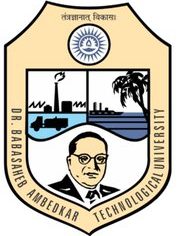Department of Electronics & Telecommunications Engineering
- About the Department
- HoD's Desk
- Academic Programs
- Authorities
- Faculty and Staff
- PEOs & POs
- Contribution in University Achievements
- Achievements
- Infrastructure
- Publications
- Students Association
- Co-curricular
- Strengths, Weaknesses, Opportunities and Challenges
A Legacy of Excellence: Journey of the Department of Electronics and Telecommunication Engineering Since its inception in 1995, the Department of Electronics and Telecommunication Engineering has remained steadfast in its commitment to academic excellence and technological innovation. What started as a B.Tech. program with an intake of 60 students has evolved into a dynamic hub of learning, research, and industry collaboration. In 2001, we introduced the M.Tech. program in Electronics & Telecommunication Engineering, further enriching our offerings. Over the years, our B.Tech. program's intake grew to accommodate 120 students per year, reflecting the increasing demand for skilled professionals in this field. The department's vision expanded to encompass a Ph.D. program in 2003, which currently engages 19 dedicated research scholars exploring areas such as Signal Processing, Computer Network, and Microwave Communication. Under the TEQIP project, we proudly support M.Tech. and Ph.D. students through fellowships, nurturing their growth as future innovators. Our curriculum embodies a thoughtful integration of Electronics, Communication, and Computing Technologies, fostering a holistic understanding of these domains. Our graduates and postgraduates emerge with a strong foundation, poised to excel in various sectors of Electronics and Communication. Securing substantial funding from esteemed bodies like AICTE, UGC, TEQIP, and the State Government, we have embarked on diverse research projects that push the boundaries of knowledge. Our state-of-the-art laboratories serve as both educational and research platforms, ensuring that students engage with real-world challenges. The faculty members, possessing rich research backgrounds, continuously contribute to addressing the latest industry challenges. Our alumni have left an indelible mark across industries such as VLSI Technologies, Embedded Systems, Signal Processing, RF Communication, and Software Engineering. Their placements in esteemed companies like Infosys, TCS, Siemens, and many more stand as a testament to the quality of education imparted here.Our students are not just job seekers; they are competitive exam takers, entrepreneurs, and global learners. Many have pursued higher education in prestigious institutions, both nationally and internationally, including IIMs, IITs, and NITs. Active participation in competitive examinations and international tests showcases their zeal for learning and growth.
Industrial exposure is a cornerstone of our pedagogy. Industrial training during summers and industrial visits provide insights into real-world operations. Conferences, seminars, workshops, and sports events further enrich the student experience. We remain committed to staying at the forefront of emerging areas within electronics and communication engineering by regularly organizing expert lectures, seminars, and workshops. In essence, the Department of Electronics and Telecommunication Engineering stands as a beacon of education, research, and innovation. We take pride in our journey and eagerly anticipate scaling greater heights, contributing to the ever-evolving landscape of technology.Vision :
The vision of the department is to achieve excellence in teaching, learning, research and transfer of technology for development of society.
Mission :
The Electronics and Telecommunication Engineering Department constantly aims at providing quality education and works towards the fulfillment of the goal and objectives in pace with the modern scientific and technological development.
Message from the Head of Department:
Department of Electronics and Telecommunication Engineering: Shaping Future Innovators
In response to the escalating demand for Electronics Engineers across government and private sectors, the Department of Electronics and Telecommunication Engineering is unwaveringly dedicated to producing adept engineers equipped to tackle real-world challenges head-on.
Our department is driven by two core objectives: upholding elevated academic standards and accentuating practical application. With a faculty composition that spans accomplished experts and vibrant, young minds, we are steadfast in delivering quality education. Our educators strive to foster a teaching approach that seamlessly integrates both practical and theoretical methodologies, leading to successful projects and accomplished training outcomes. We remain open to pioneering ideas and methodologies, aspiring to be the premier learning hub in this region of the state.
Our laboratory facilities undergo continuous enhancements to provide students with abundant opportunities to learn and innovate. Special classes are orchestrated to prepare students for GATE examinations. Engaging weekly lectures feature alumni and industry technocrats, offering invaluable guidance and insights into the external world's demands. This significantly contributes to our students' holistic development. The department is a hub of training programs, workshops, exhibitions, idea competitions, conferences, and soft skills development initiatives, augmenting students' theoretical knowledge and practical acumen.
Through the generous support of AICTE, UGC, TEQIP, RUSA, and other governmental agencies, the department consistently secures grants to fuel a range of research projects.
To further enrich the student experience, our students have established a vibrant departmental student association, spearheading an array of technical and cultural events. Bolstered by the conviction that "Engineers are the creators of the new world," our Department proudly hosts a fully equipped Project Lab, nurturing student creativity. Educational excursions and industrial visits are recurrent, enhancing students' practical insights by immersing them in cutting-edge industry technologies.
In summation, the Department of Electronics and Telecommunication Engineering remains resolute in its mission to nurture adept engineers and contribute to technological progress. We eagerly anticipate surpassing our own accomplishments and leaving a lasting imprint on the realm of electronics and telecommunication.
Prof. S. L. Nalbalwar
Head,Department of EXTC
\
Program | Courses Offered | Commencement Year | Intake |
B.Tech | Electronics & Telecommunication Engineering | 1995 | 60 |
VLSI Design & Technology | 2022 | 30 | |
Electronics & Telecommunication Engineering (Marathi) | 2023 | 30 | |
M.Tech | Electronics & Telecommunication Engineering | 2001 | 16 |
VLSI Design | 2023 | 30 | |
Advanced Communication Technology | 2023 | 30 | |
Ph.D. | -- | 2003 | -- |
| Sr. No. | Name | Designation |
| 1 | Lt. Cdr (Retd) Ravindra Kale | Sr. Program Manager, Tata Communication Ltd., Mumbai. |
| 2 | Dr. Munir Sayyad | General Manager and Head of Reliance JIO Quality Assurance Lab, Mumbai |
| 3 | Suresh Lok | Senior Vice-President Consulting Innovation and Evaluation for New Age Services at International Innovation, Incubation and Traininga Center, Navi Mumbai |
| 4 | Santosh B. Gadewar | DGM – SAP IT Business Solutions, Larsen & Toubro Limited, EAIC, Powai, Mumbai– 400 072 |
| 5 | Dr. V.M. Gadre | Professor, Electrical Engineering, IIT Bombay |
| 6 | Dr. R.R. Manthalkar | Professor, Department of E & TC, SGGSIE & T Nanded, MS |
| 7 | Dr. S.G. Bhirud | Professor, E & TC VJTI Mumbai |
| Sr. No. | Name | Designation | |
| 1 | Dr. S L. Nalbalwar | Head, Department of Electronics and Telecommunication Engineering | Chairman |
| 2 | Dr. D. S. Bormane | Principal, JSPM’s, RSCoE, Pune | Member |
| 3 | Dr. R. N. Awale | Professor of Electronics Engineering, VJTI, Mumbai | Member |
| 4 | Dr. S. B. Deosarkar | Professor of EXTC , Dr. Babasaheb Ambedkar Technological University, Lonere – Raigad | Member |
| 5 | Dr. A. B. Nandgaonkar | Associate Professor of EXTC, Dr. Babasaheb Ambedkar Technological University, Lonere – Raigad | Member |
| 6 | Dr. Munir Sayyad | General Manager, Reliance Jio, Mumbai. | Expert |
| 7 | Dr. R.M. Autee | DIEMS, Aurangabad | Member |
| 8 | Dr. P.J. Deore | RC Patel Institute of Technology, Shirpur | Member |
| 9 | Dr. A.D. Sayyad | Marathwada Institute of Technology, Aurangabad | Member |
| 10 | Dr. S.D. Nawale | N B Nawale Sinhgad College of Engineering, Solapur | Member |
| 11 | Dr. Sachin Singh | AKTU Luckhnow | Member |
| 12 | Dr. Vinay Kumar | HPTU, Hamirpur | Member |

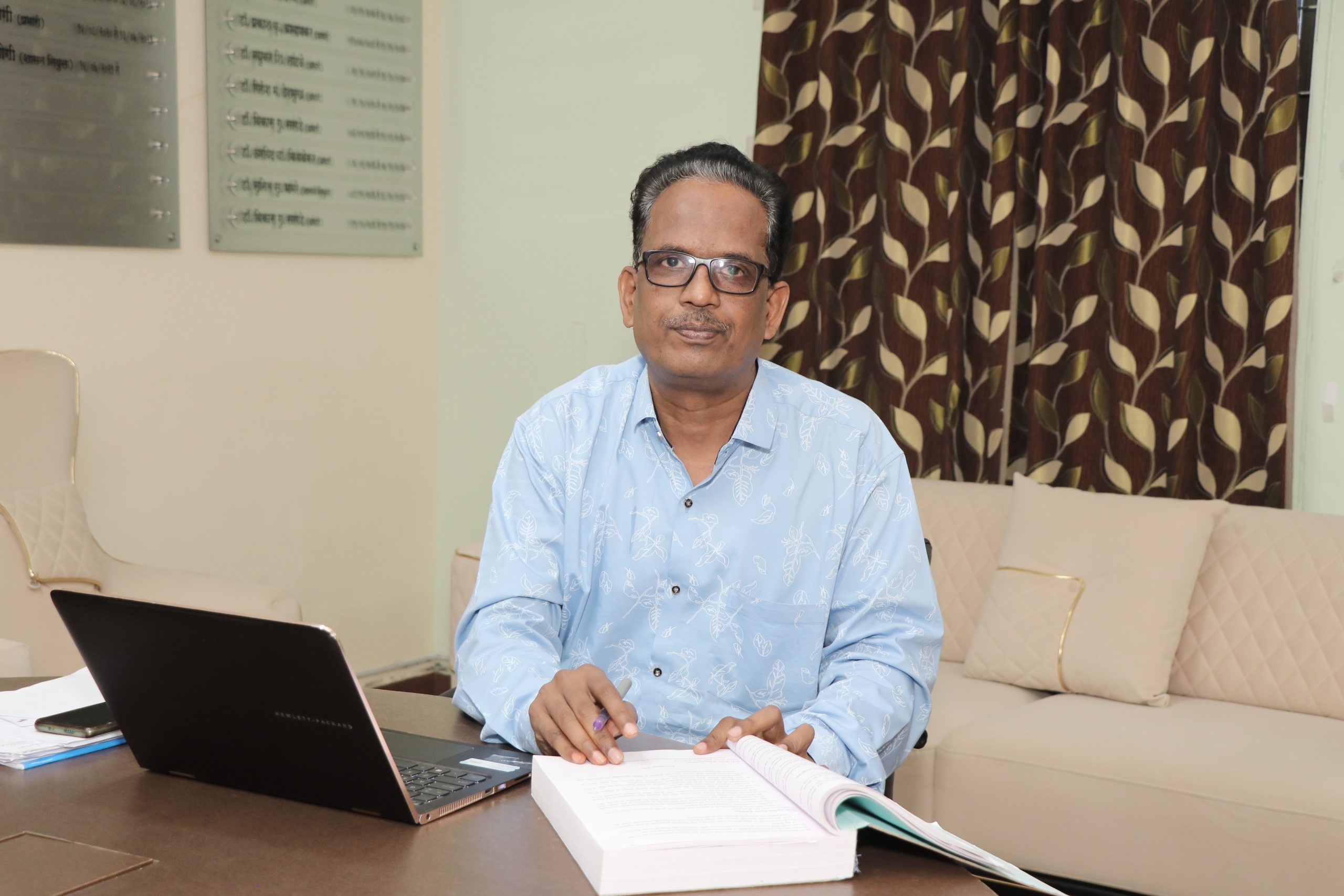
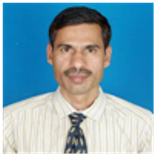
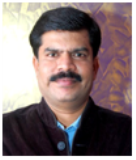
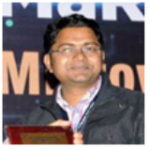
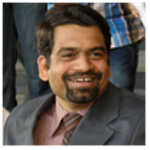
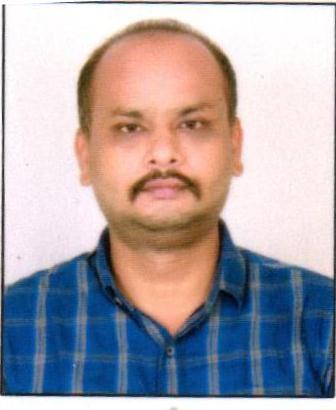
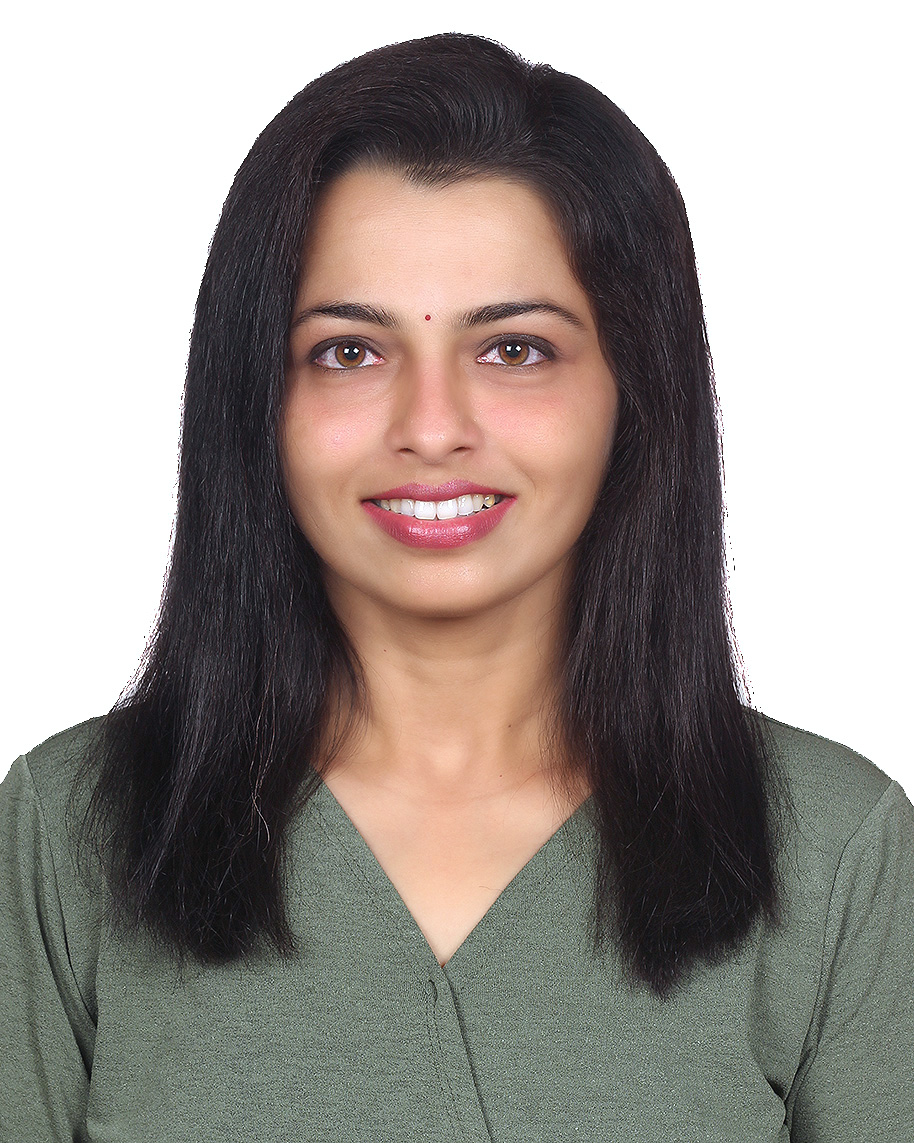
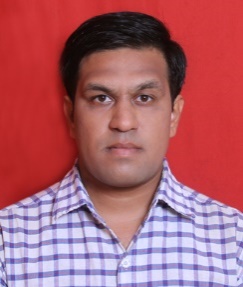
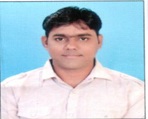
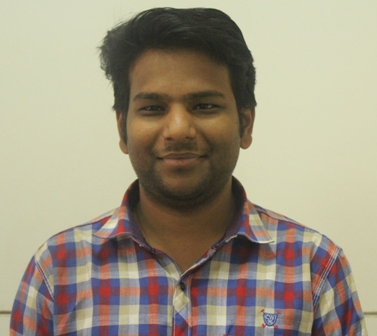
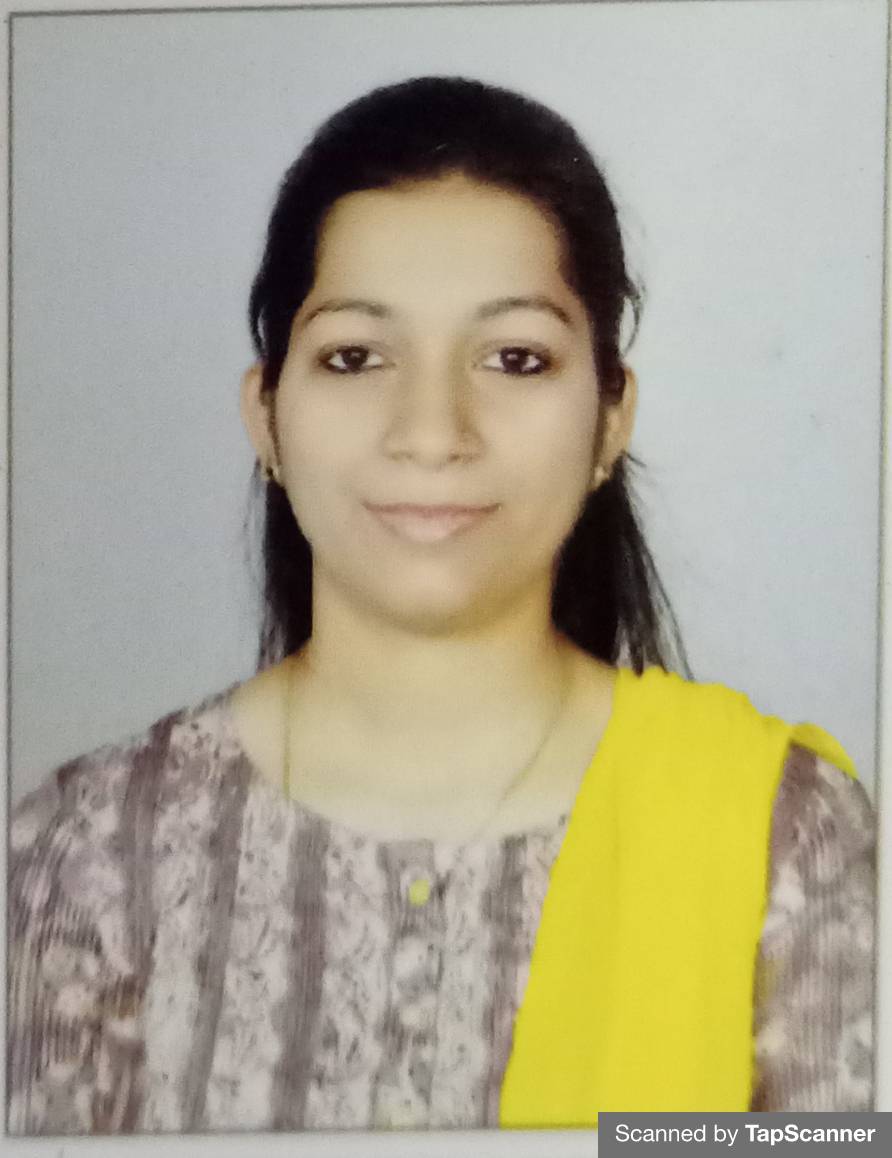
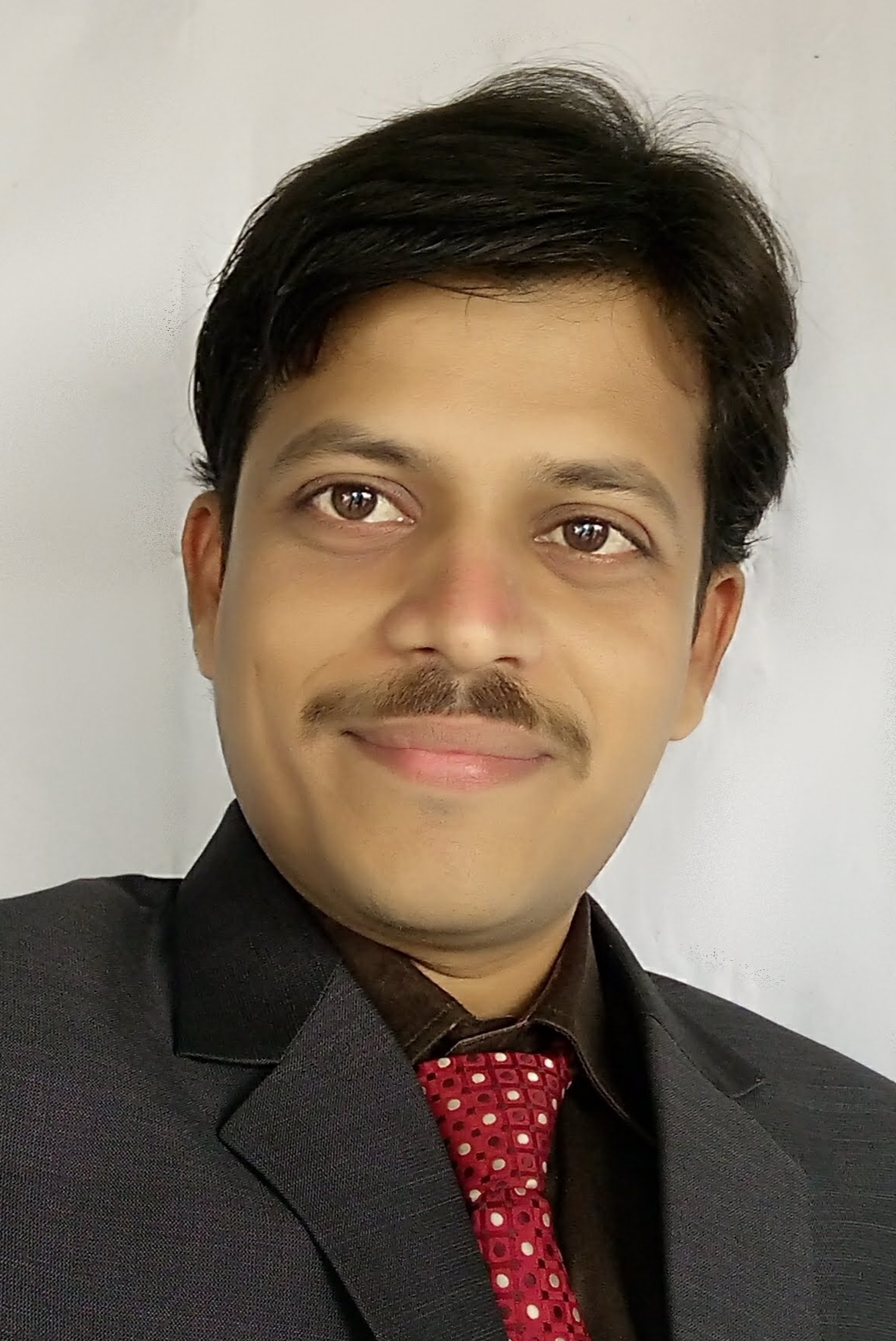
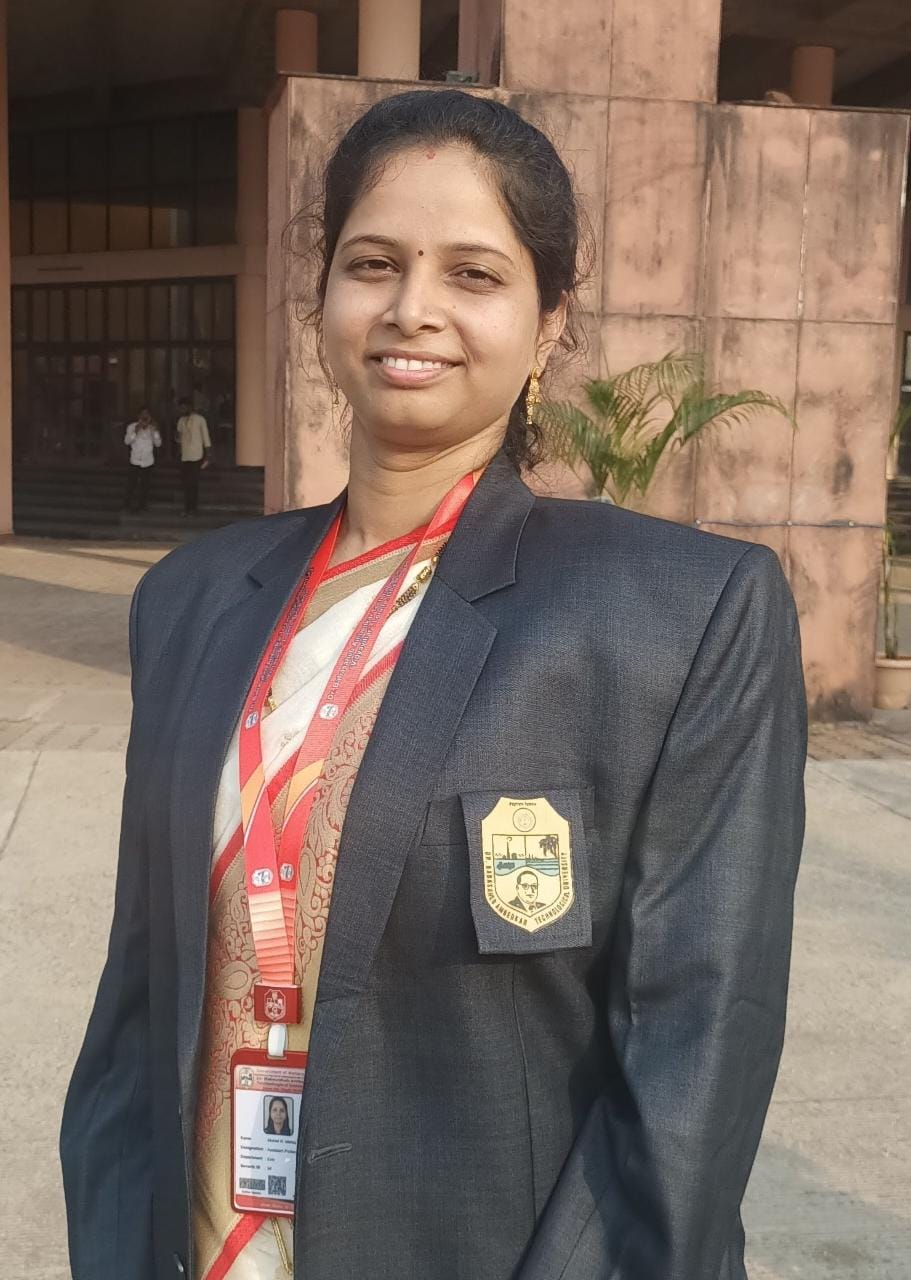
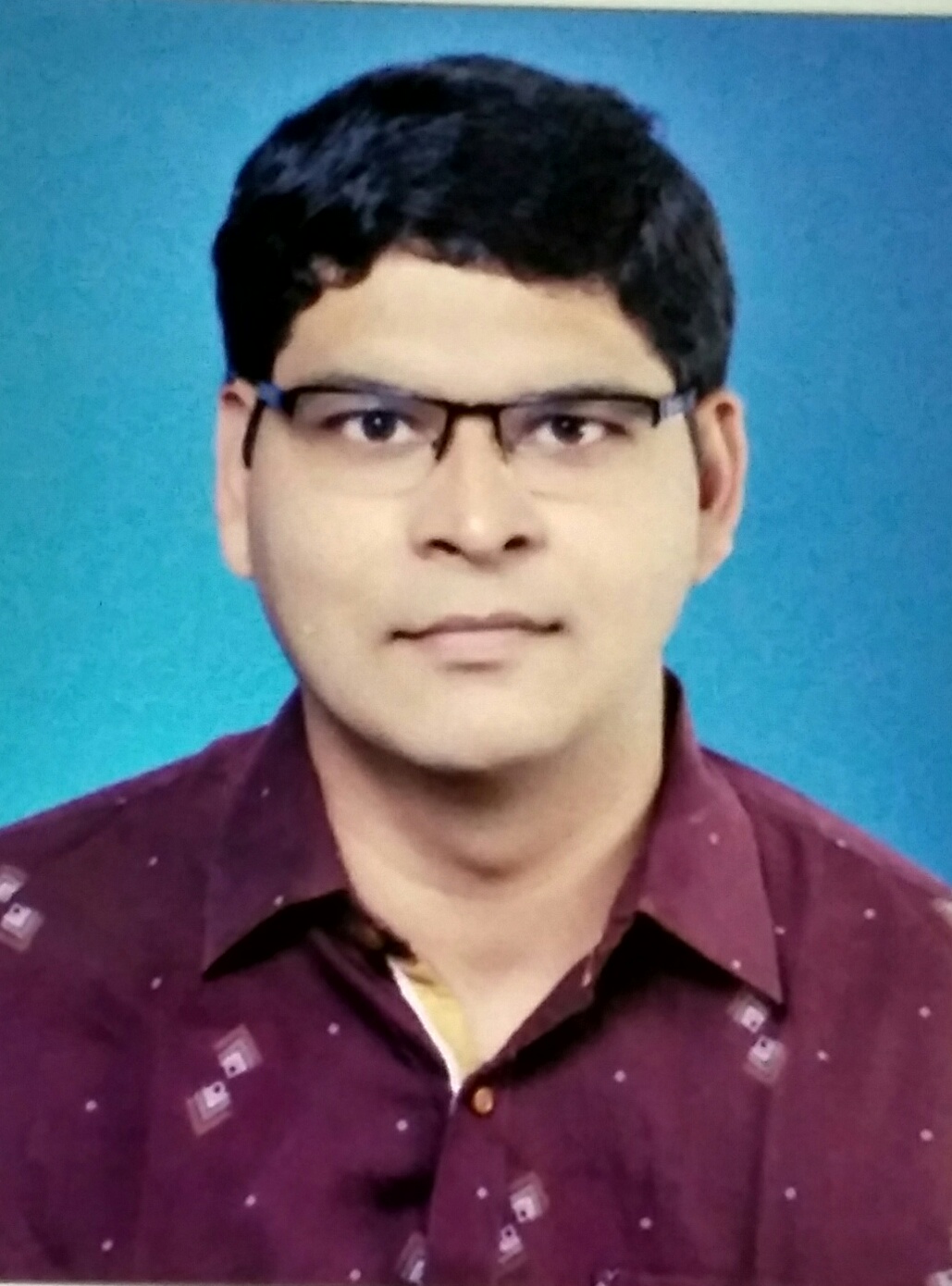
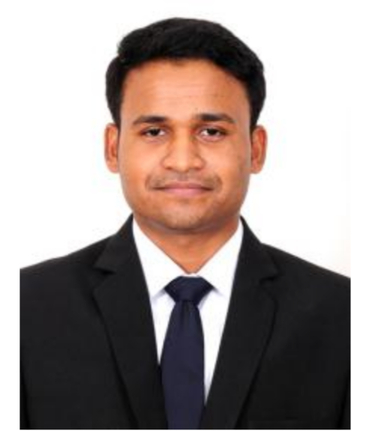
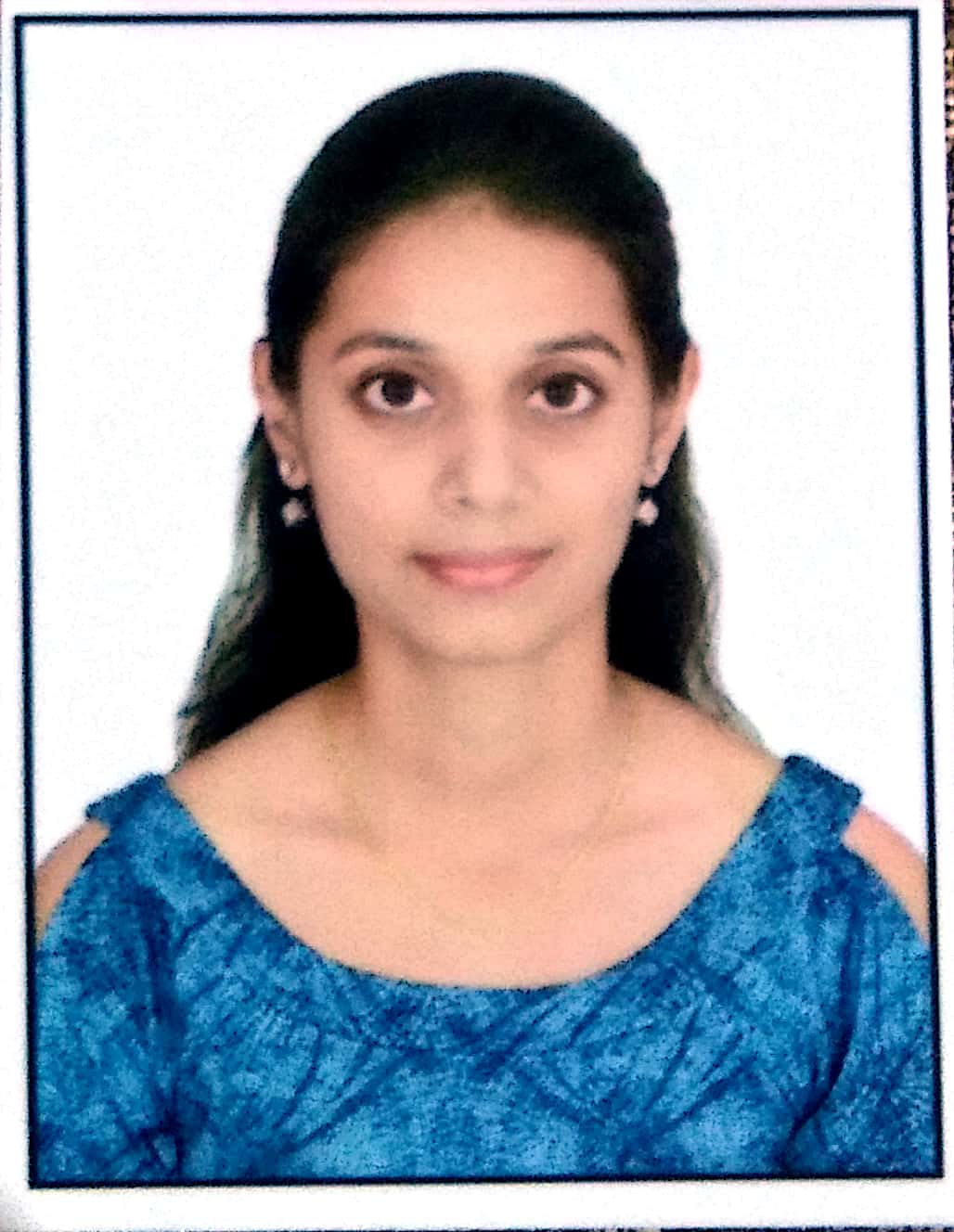
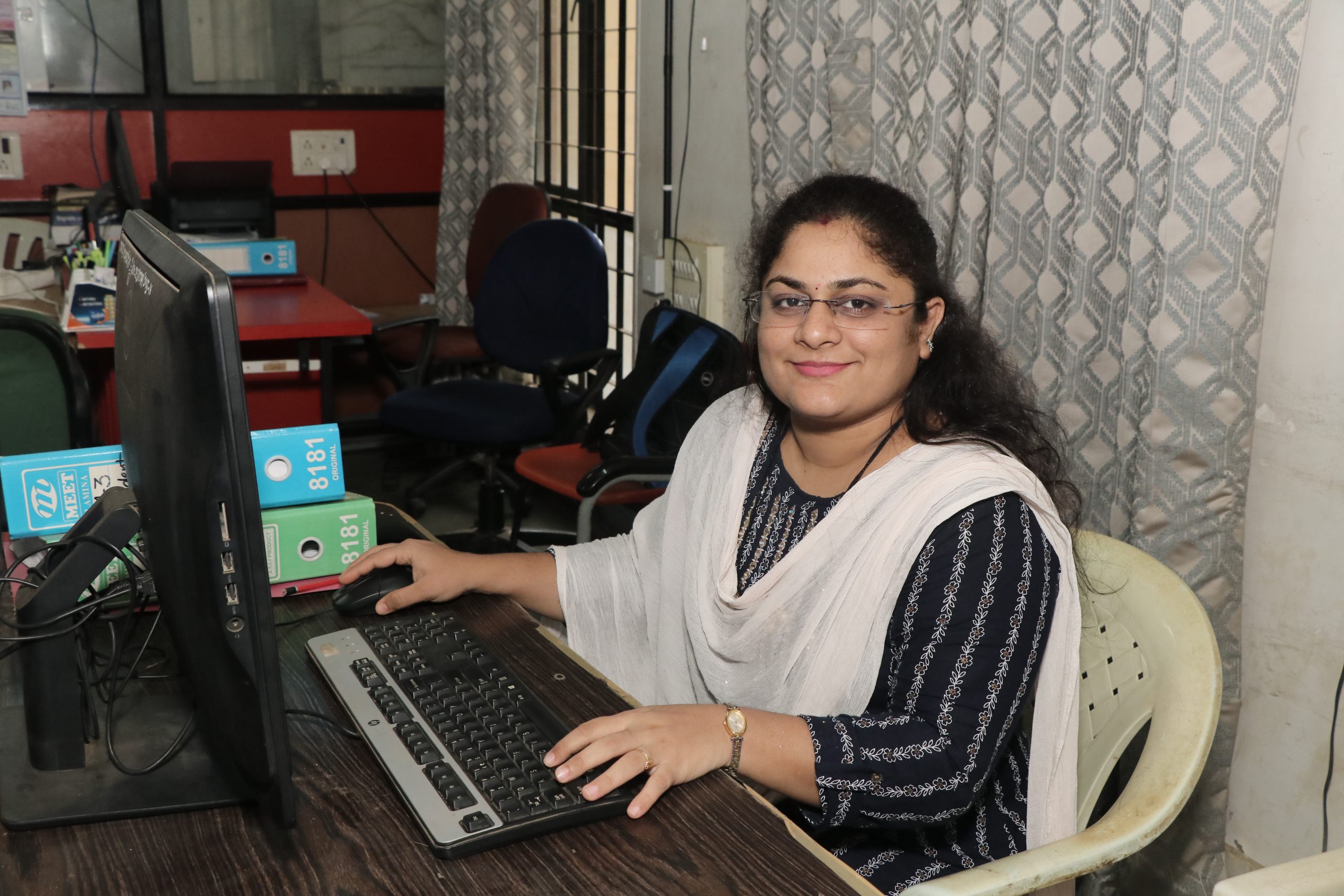
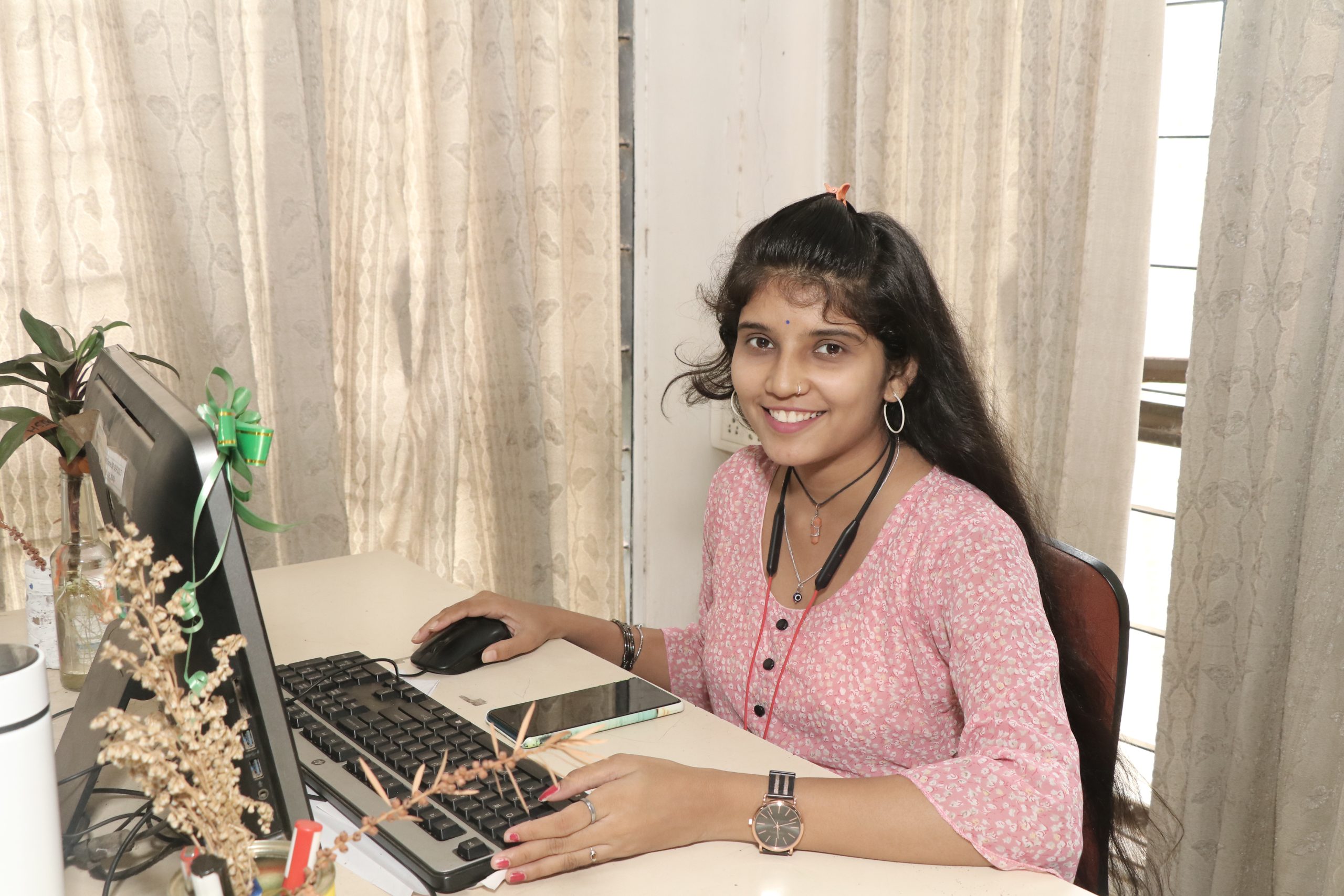
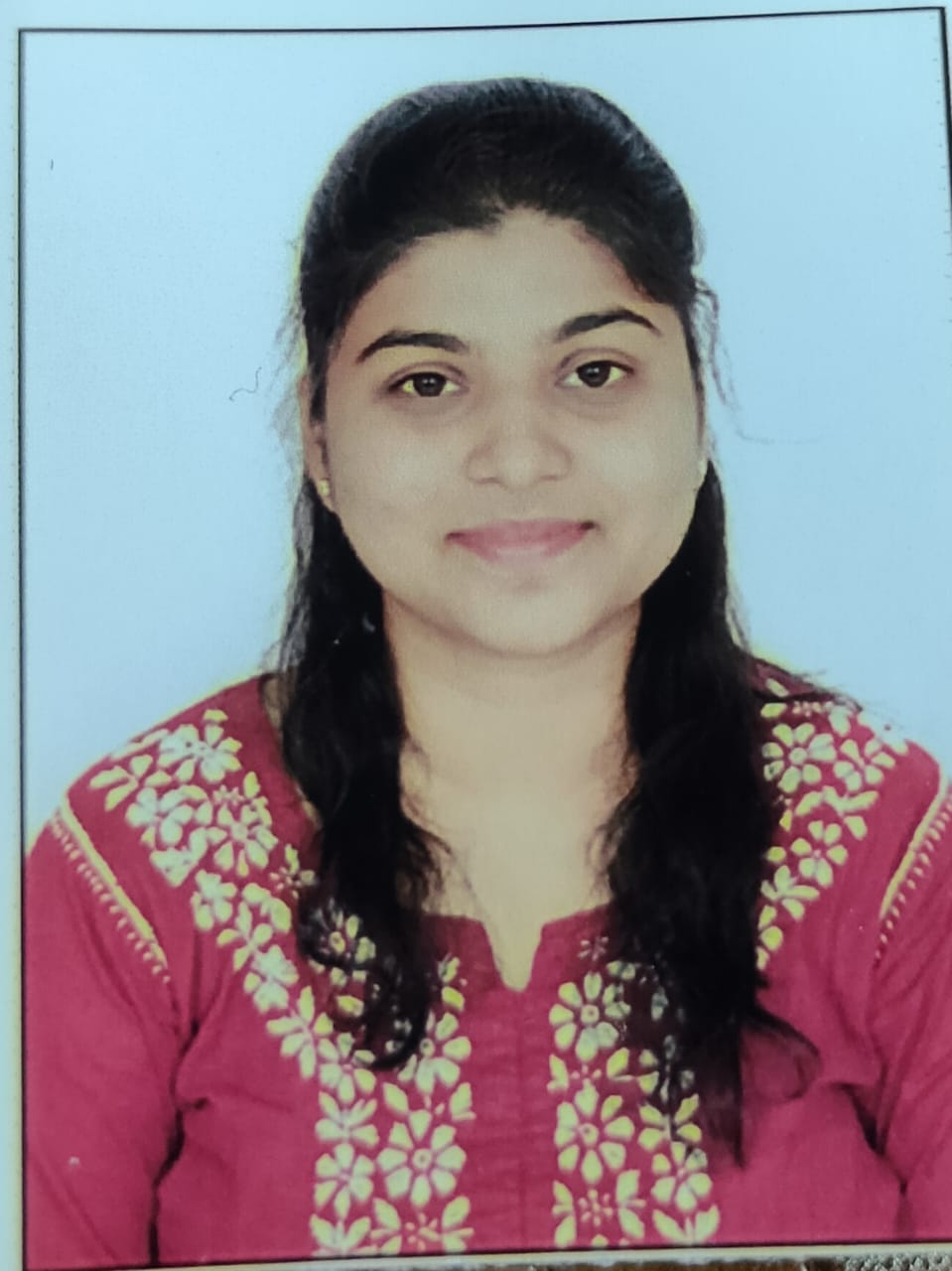
| Sr. No. | Name | Designation / Role | Nature of Association |
| 1 | Mr. S. T. Jadhav | LabTechnician | Regular |
| 2 | Mr. S. P. Patil | LabTechnician | Regular |
| 3 | Mr. A. A. Kadu | Lab Assistant | Regular |
| 6 | Mr. R. T. Alkunte | I.C.T Engineer | Contract |
| 4 | Mr. S. D. Batawale | Lab Assistant | Contract |
| 5 | Miss. S. K. Jambare | Clerk Cum Typist | Contract |
| Name | Details |
| 06 Faculties | Working as translators for AICTE Technical Book translation scheme. |
| 10 Faculties | Working as reviewer for AICTE Technical Book translation scheme. |
| 02 Faculties | Successfully translated books for AICTE Technical Book translation scheme. |
| 11 Faculties | Successfully reviewed books for AICTE Technical Book translation scheme. |
| 15 Faculties | Recognized as Innovation Ambassadors by MoE Innovation Cell. |
Programme Educational Objectives (PEOs):
- To prepare students to excel in technical fields in order to pursue postgraduate programs or to succeed in industry/technical profession, R&D institutions through global and new emerging areas in Electronics and Telecommunication engineering.
- To provide students with a solid foundation in mathematical, scientific and engineering fundamentals required to solve engineering problems.
- To train students with good scientific and engineering breadth in core subjects so as to comprehend and simulate to cater changing needs of society, analyze, design, and create novel products and solutions for the real life problems.
- To develop in students, professional and ethical attitude, effective communication skills, leadership, teamwork skills, multidisciplinary approach, and an ability to relate engineering issues to broader socioeconomic context.
- To provide students with conducive academic environment, awareness of excellence and the life-long learning needed for successful professional career.
Programme Outcomes (POs):
- The graduates will possess the knowledge of differential equations, vector calculus, complex variable, matrix theory, probability theory, physics, chemistry and electrical & electronics engineering.
- The graduate will demonstrate an ability to identify, formulate and solve Electronics & Telecommunication engineering problems.
- The graduates will have an ability to design electronic circuits and systems, analyze and interpret data.
- The graduates will have an ability to design digital and analog systems and components.
- The graduates will possess the knowledge of advanced and emerging topics in the fields of Electronics, Signal Processing and Communication.
- The graduates will demonstrate the skills to use modern engineering tools, software and equipment’s to analyze and solve real-life problems.
- The graduate will have broad understanding of the impact of Electronics and Telecommunication field in economic, environmental and social context and also will be aware of the contemporary issue.
- The graduates will possess communication skills necessary to communicate engineering ideas. The skills set include verbal, written and listening skills.
- The graduates will demonstrate the ability to work and collaborate in heterogeneous teams.
- The graduates will demonstrate the awareness of professional and ethical responsibilities.
- The graduates will develop self-confidence and ability for lifelong learning.
- The graduates will understand the concepts of engineering and management principles and apply to their own work to manage projects in multidisciplinary environments.
Sr. No. | Activity | Agency | Recognition for University |
1 | ARIIA (Atal Ranking Of Institution On Innovation Achievement) | MoE, GOI | •BAND “Performer” For ARIIA 2021 •BAND “A” for ARIIA 2020 |
2 | IIC (Institution’s Innovation Council) | MoE, GOI | •4 STAR RATING for IIC3.0 •4.5 STAR RATING for IIC2.0 |
3 | NIRF-2023 (Innovation Category) | MoE, GOI | •Ranked in the band of 151-300. |
| Name | Details |
Dr. S. B. Deosarkar Dr. Brijesh Iyer Dr. Sandeep Bavkar | •Patent Granted On Alcoholism Level Detection Method For Rehabilitation Center Using Functional Connectivity In Resting EEG |
| Dr. Pallavi Ingale | •NPTEL/SWAYAM Domain Certification in Communication and Signal Processing(Electrical Engineering) in Dec 2020. •NPTEL/SWAYAM Discipline Star in Electrical Engineering in Dec 2019. •Young researcher award in IETE National Conference on Computer, Electrical and Electronics Engineering, March 2016 held in Dr. BATU at Lonere. • Successfully completed 12 SWAYAM courses |
| Tejas Mahagaonkar, Aniket Jangam | •Gold Medal Inter University Avishkar 2023 |
| Roshan K Bonde | •Best Innovation Ambassador in WRO region. |
| Name | Details |
Dr. Sanjay Nalbalwa Mohini Mehta | •South African Standard Patent Granted On “A System To Identify A Snake And A Method Thereof” 2022/09386 |
| Jyoti Rani S. Kalgi | •NPTEL discipline star recognition in EE discipline •NPTEL/SWAYAM Domain Certification in Communication and Signal Processing(Electrical Engineering) |
Startup Ecosystem
Name | Details |
Mr. Sanket Kumbhar (Start-up Incubatee) (Student) | •Participation and Winner by Incubatee in Anvesion 2019-20 jointly organize by AIU, New Delhi and Department of student Development, University of Mumbai •Participation and Winner by Incubatee in Innovative Project Competition during innovation Festival 2020 Organized by Nehru Science Centre Mumbai |
Mr. Anand Janunkar (Start-up Incubatee) (Student) | •Winner at Maharashtra Helth Hackathon MH2 conducted by Maharashtra state Innovation Society (MSIns) •Rising Entrepreneur Award at eMEDHA 2021 by IITB. |
Mr. Saurabh Singh Miss Pranali Jha (Start-up Incubatee) (Student) | Developed prototype for Student Bicycle Sharing System |
Karan Singh Thakur Gaurav Sharma (Start-up Incubatee) (Student) | Developed prototype for Bionic Bird |
Abhishek Sharma | Developed Plastic shoe as a sustainable product |
Student Achievements
Name | Details |
Abhishek Sharma | •Winner: competition held by Association of Indian Universities and Amet University Chennai •Runner-up: Technoxian Sr. Innovation International Contest at Indhira Gandhi Stadium, New Delhi •Runner-up: Stratical- The Startup Battlle National Level Inter College Startup Plan Competition •Winner: AAVISHKAR-2022 at Savitri Bai Phule Pune, University |
Yogeshree Davane | •50 k Scholarship from DBATU Alumni Association for promoting gender equality and empowering young women |
Anis Mulani | •T J Park PSCO Asia fellowship 2022-23 |
Hemant Patake | •Best NSS Cadet award |
Pratiksha Kadam | •UPSC AIR 560 |
Laboratories
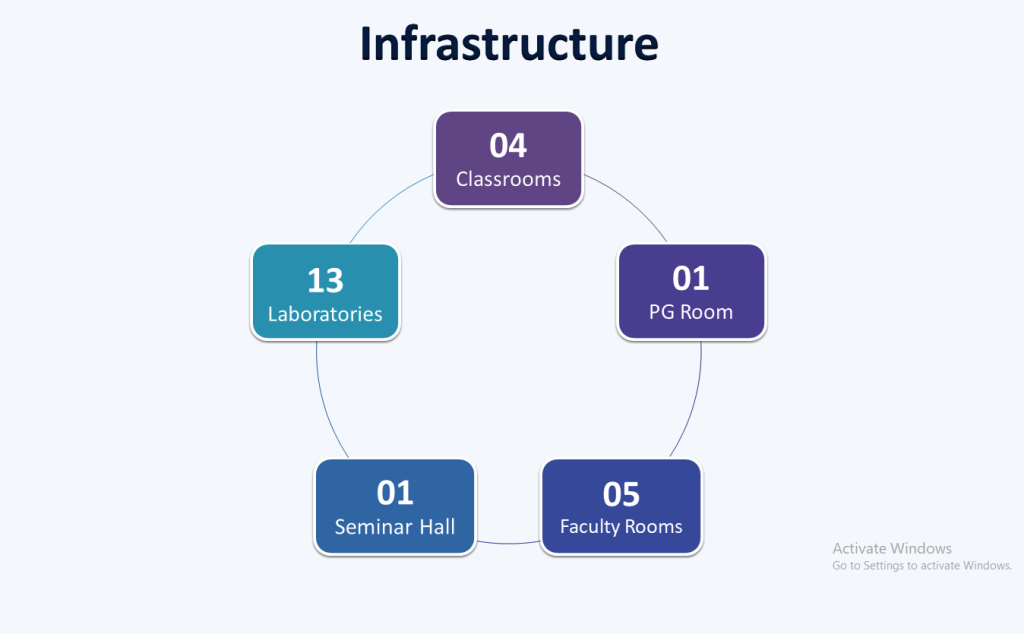
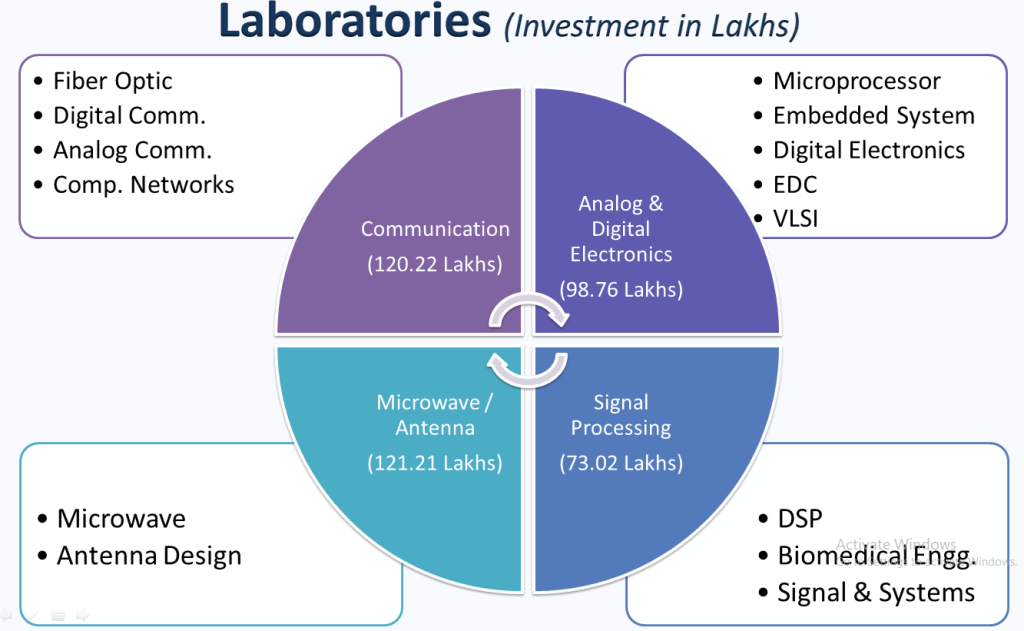
Classroom
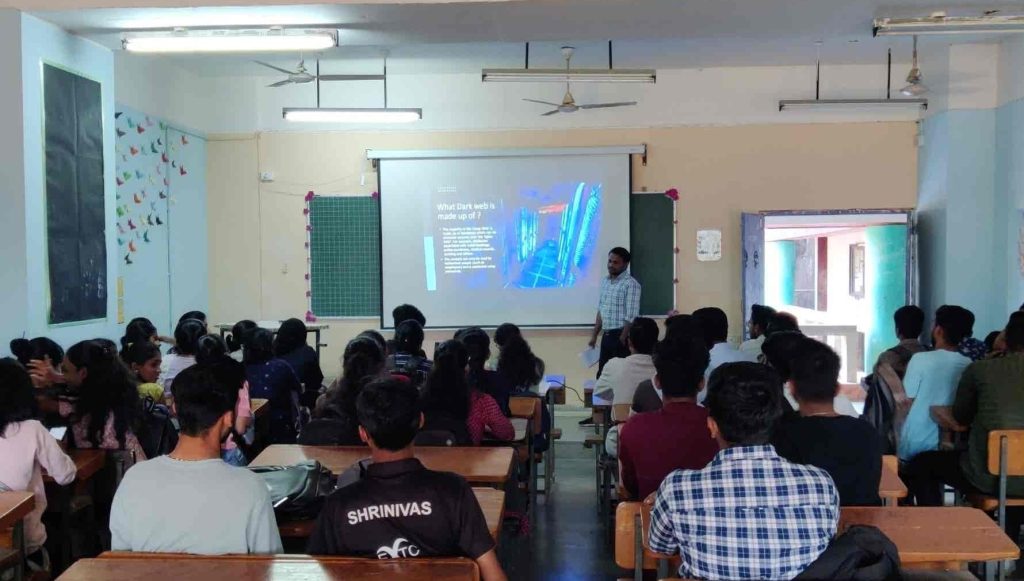
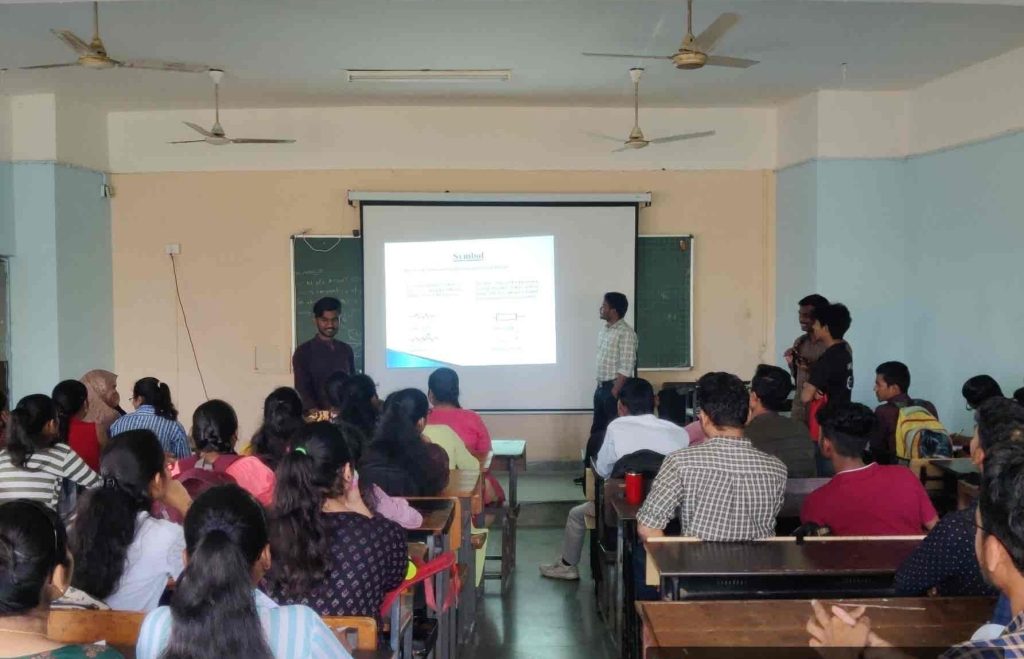
Types of Publication | No. of Publications by Faculty | No. of Publications by Student |
Journals (SCI/ESCI/Scopus) | 75 | 46 |
Other Journals | 30 | 18 |
International Conference | 206 | 101 |
National Conference | 18 | -- |
Book Publications
Sr.No. | Faculty Name | Title | Name of the publisher |
1 | Dr. S. L . Nalbalwar | Signals and Systems | Synergy Knowledge Publication, Mumbai |
2 | Dr. S. L. Nalbalwar | Electronics Devices and Circuits | Synergy Knowledge Publication, Mumbai |
3 | Dr. S. L. Nalbalwar | Digital Signal Processing | Synergy Knowledge Publication, Mumbai |
4 | Dr. S. L. Nalbalwar & Dr. Brijesh Iyer | Basic Electronics | Synergy Knowledge Publication, Mumbai |
5 | Dr. Narendra Jadhav | Digital Electronics and Microprocessor | Nirali Prakashan |
6 | Dr. A. B. Nandgaonkar | Digital Communication | Nirali Prakashan |
7 | Dr. Narendra Jadhav | Digital Logic Design | Nirali Prakashan |
Department have a student association named ‘Telecommunication and Electronics Engineering Students’ Association (TEESA)’
Faculty Incharge: Dr. Narendra S. Jadhav
| Sr. No. | Designation | Name | Year |
| 1 | President | Mr. Anis Mulani | Final Year (B.Tech.) |
| 2 | Secretary | Mr. Abhishek Sharma | Third Year (B.Tech.) |
| 3 | Sports Coordinator (Male) | Mr. Vinit Singh | Third Year (B.Tech.) |
| 4 | Sports Coordinator (Female) | Miss. Sonali Dalvi | Third Year (B.Tech.) |
| 5 | Technical Coordinator | Mr. Pranav Jagtap | Third Year (B.Tech.) |
| 6 | Technical Coordinator | Miss. Vaishnavi Hode | Second Year (B.Tech.) |
| 7 | Cultural Coordinator | Mr. Pratham Dubey | Third Year (B.Tech.) |
| 8 | Cultural Coordinator | Mr. Arin Kamble | Second Year (B.Tech.) |
Sr. No. | Activity | Quantity |
1 | Conferences(National/International) Organised | 8 |
2 | FDPs/STTPs/CEPs Organised | 14 |
3 | Competitions and Training Programs Organised | 15 |
4 | Workshops Organised | 13 |
5 | Expert Talk/ Lecture Organised | 24 |
6 | Hackathon | 03 |
7 | National Innovation Contest | 01 |
8 | Funded Research Projects | 14 |
9 | IIC activities | 100+ |
10 | Student Development Program (Slow / Advanced Learners) | 05 |
Strengths:
- Highly dedicated and motivated faculty members
- The curriculum design is perfect blend of Electronics, Communication and Computing Technologies
- The department regularly gets handful amount of funding from AICTE, UGC and State Government by way of various research and other projects
- Guidance and support from Alumni
- Research publication by faculty members
- Well-equipped labs for UG, PG and Research Scholars
Weaknesses:
- Departmental maintenance: Most of the minor problems related to maintenance and installations are handled in department itself. These problems are solved by laboratory assistants and department students. For major problems such as repairing of PC motherboard, trainer kits, UPS controller, testing and measurement equipment, department does not have maintenance and repair facility. Some of the equipments are obsolete; hence need to be replaced by new ones.
- Lack of adequate Space for laboratory and classrooms: The department intake is of 120 students. It is difficult to manage classes, examinations and practices in the space allotted to the department.
- Faculty shortage: Presently, faculty strength of department is six. However, department activities are carried out by appointing faculty on contract basis and also by appointing teaching assistants.
Opportunities:
- The graduates from this discipline have very good job opportunities in Embedded Systems, IoT, Signal Processing, RF Communication, VLSI technologies, Mobile Communication and in Software Engineering.
- Every year many of our students are getting placed in industries like Infosys, Accenture, Cognizant, TCS, Reliance, etc.
Challenges:
- Managing all departmental activities with the help of available faculty members.
- Recruitment of qualified faculty members having Ph. D. qualification.
- Attracting creamy students for UG, PG and Ph. D programmes.
